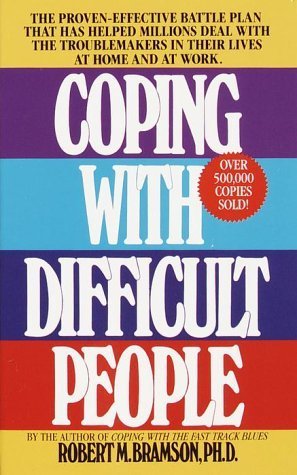What do you think?
Rate this book


240 pages, Mass Market Paperback
First published January 1, 1981
We have all felt victim to forces beyond our control. Bureaucracies are huge and can seem inflexible. Accidents and illness void carefully made plans. "The world is great and fate conspires" is an accurate, if partial, description of anyone's life. All of us, therefore, can feel angry helplessness when the negative realities in a situation are pointed out in a way that communicates discouragement.
The way people behave is not due solely to an early earned set of personality traits, although personality traits certainly have much to do with anyone's behaviour. ... Personality is simply the repertoire of strategies and tactics for dealing with life that an individual has learned to prefer. Any specific situation at times pulls out and at times inhibits certain of the strategies in that person's armentarium.